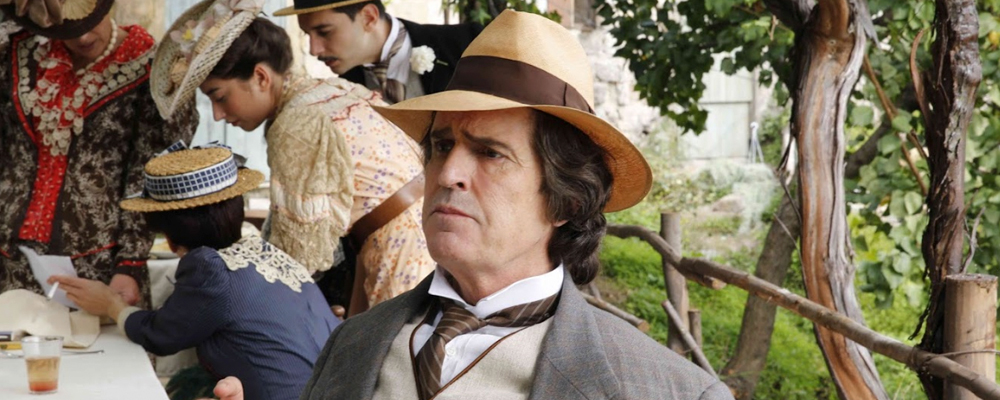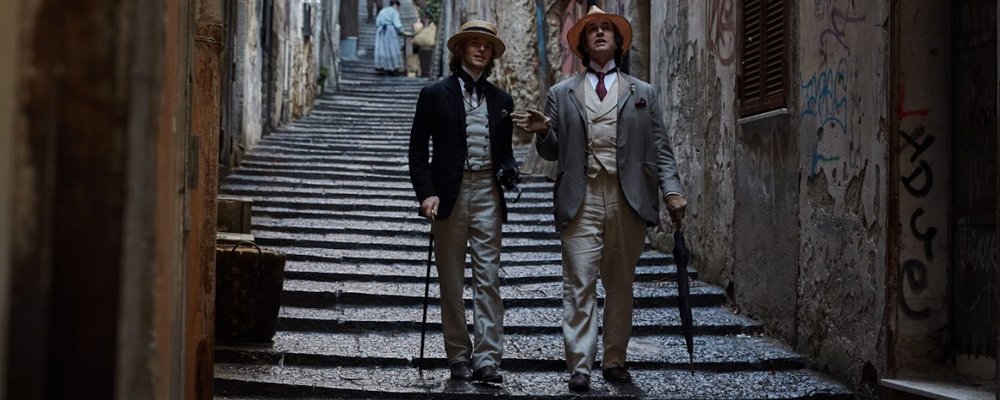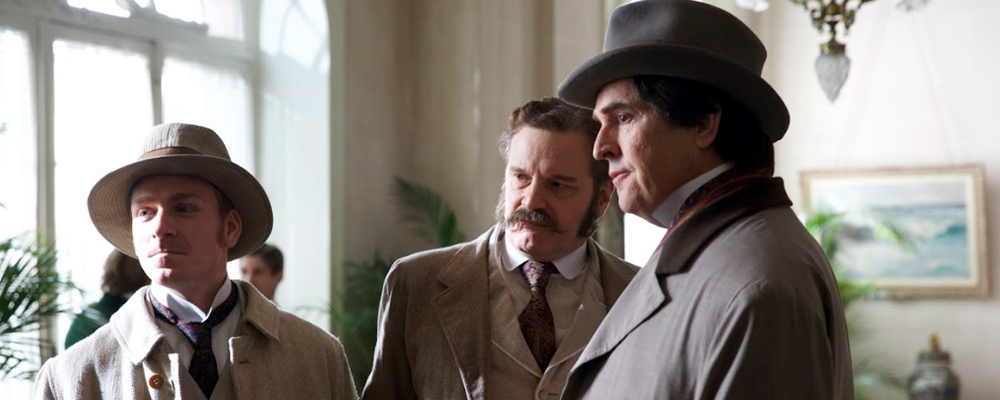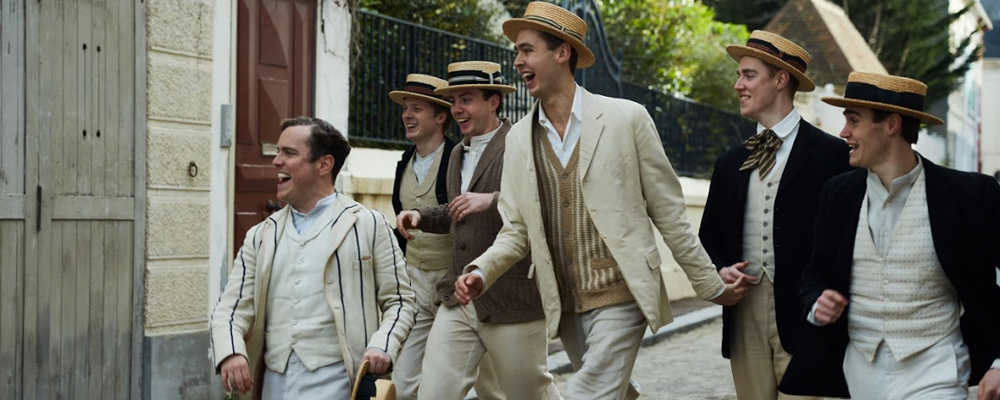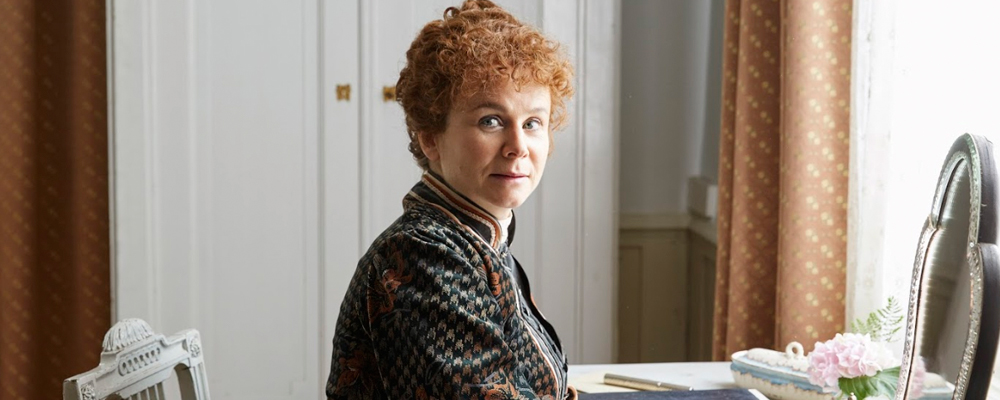Rupert Everett Reflects on Recreating the World of Oscar Wilde for ‘The Happy Prince’
Alci Rengifo
Rupert Everett has basked in the glow of fame and recognition, and known the sudden shadow of obscurity. It is not surprising to find out that he is a great admirer of Oscar Wilde, an artist who produced work acclaimed in its day and beyond, yet the revelation of his sexual identity became the truth that marked his tragic downfall. Everett still believes it was his coming out that suddenly ended his streak of hits which includes “The Madness of King George,” “My Best Friend’s Wedding,” “Shakespeare in Love” and “Shrek 2.” Little wonder he felt connected to an artist from long ago, yet so contemporary. Now Everett has written and directed “The Happy Prince,” an elegant and passionate portrait of Wilde after the fall. Everett himself plays Wilde, conjuring the great writer as an iconoclast and free spirit to the end.
It is the early 1900s and Wilde entertains and drowns his sorrows in the cafes and nightspots of Paris, refusing to ever return to England. Having been imprisoned over his love affair with Lord Alfred Bossie Douglas (Colin Morgan), Wilde is left now old but still burning with words, with loyal friend Robbie Ross (Edwin Thomas) attempting to keep him centered. Another loyal friend, Reggie Turner (Colin Firth) also worries at the decline of the author. Yet even as he loses himself in memories, Wilde displays his sharp wit at every turn, biting and cutting into society even as he basks in its excesses. Additionally, Wilde cannot keep himself away from Douglas, and seeks him out like a moth seeking a final consumption in a flame. His conscience also returns again and again to his wife Constance (Emily Watson), who has endured so much humiliation due to Wilde’s public scandals, yet doesn’t harbor any hatred towards him and still raises their children. In a Europe rapidly approaching great changes, Wilde lives out his final days attempting to live in freedom, even as it may be but an illusion.
As a directorial debut “The Happy Prince” is a great achievement for Everett. You would think he’s already directed a few of these period pieces when looking at the visual craft, elegant tone and confident structure of this film. Cinematographer John Conroy lights this world with warm and dark colors, where the streets of Paris become gritty corridors into hidden, lavish parties. There is a belle epoque vibe to scenes where Wilde captivates a cabaret audience with his singing, just to make up for an unpaid tab. He stays with his friends in old world European spots gorgeous in their decay. Gabriel Yared’s music score is wistful and lush. Everett transports the audience to another time while still creating a memorable portrait of a specific individual.
Everett recently sat down with Entertainment Voice to discuss the long road to making “The Happy Prince.”
“Immersing myself with Oscar Wilde was really exciting,” says Everett. “When you start off writing a script about something like this, you can almost know what these people were doing every day because they wrote so many letters in the 19th century. So you can sleuth a character in a very good way. You can go to the places, and find the street corners and clothes if you wanted to.” Everett read every book he could get his hands on about Wilde, both contemporary and recent. Yet his focus is on a specific period, when Wilde is released from hard labor and attempts to recover his life. “All the other stories shy away from the responsibility of what society did to this man for the crime of being homosexual. It wasn’t just the horror of a prison sentence with hard labor. It was also the weird sort of horror of another liberty that became another sort of prison. For me the story that was interesting to tell was like Christ’s passion, it’s the passion of Oscar Wilde.”
Wilde lived in a period before film, video and YouTube. To conjure the man takes the real craft of acting. “That’s the job of being an actor, really. You get a picture of the character for yourself. It’s quite easy in a way, because there’s several roles in Wilde’s writing that are very much him. For example the character of Lord Henry Wotton in ‘The Picture of Dorian Grey’ is very much one side of Wilde, then the character of the painter in ‘Dorian Grey’ is another side of Wilde. So you can read those two things. When you read the plays- remember he’s an outsider looking at British culture, he’s not English. He’s Irish, which for the English of the time was a very different thing. So he’s a very particular type of outsider.” Of course the other source of inspiration is the voluminous material on Wilde, who in his prime was deemed the most famous man in London. It was an era where writers were true celebrities. “He became kind of blinded to the structure of society. He was a kind of elephant vagabond.”
The cast of “The Happy Prince” is a rich assortment worthy of an Oscar Wilde posse. In addition to Colin Firth there is Emily Watson. “They were all very supportive as friends,” says Everett. “They went way beyond the call of duty. Much of the financing was based on them being in it. So if Colin had fallen out the funding would have as well. So I’m very beholden to him.”
The passage of time helped Everett craft the film in an even more personal manner. “It happened in a specific period in my life. I wrote it when I was about 48 and made it when I was 58. By my late 50s my career was like the light at the end of a train tunnel that was receding. At a certain point I thought, if I don’t make this movie now, who am I? I will no longer exist if I wait more.”
But how does an actor with a slightly bohemian reputation adapt to the solitude of the writing process? “I work in the mornings when I write. I think writing for an actor is quite a challenge, because we are used to doing things in a group. We spar off each other. A writer, as you know, is on their own. It’s a completely different world. For an actor approaching writing you need to do it in a very disciplined way. I can’t write for half an hour in an airport, for example. Maybe actual writers can. I really need to structure time. The idea of working alone is so alien to an actor.”
To become Wilde Everett also underwent a physical transformation which he recalls with much gusto. “The worst type of thing is to try and be good looking as you’re getting older. That is such a strain, you can get hemorrhoids from trying. Going the other way is much easier. It’s fun. I had these amazing things built into my cheeks, inside, some dental things. I had this amazing suit made by this artist in London. He makes all the big fat suits for Hollywood. And they’re not just fat suits, they have different textures. So you have a lovely, low-hanging ass, which really feels like an ass, and fabulous, low-hanging boobs.”
For Everett much of Wilde’s enduring value has to do with how the writer was an early advocate of issues still hotly debated today. “For me what’s so exciting about him in that period, all of the debates of the 20th century were born. The women’s movement was born in the period, modernism, Wilde and the homosexual movement started. That whole period was a huge catalyst and we’re still living through the consequences.”
Everett himself lived in a New York of the 70s and 80s as colorful as the world of Wilde. “What was extraordinary about the world of Andy Warhol and Bianca Jagger and Madonna in the 80s, was that the whole of society, across the classes, across financial spectrum went out, together. This is an alien thought now. Everyone stays in,” he reflects. “That is something most striking about that period compared to now. Margaret Trudeau was there dancing with a plumber. That was reality. Someone else was sitting around talking to a drug dealer. There was a kind of melting pot. It was the pre-birth of political correctness, so everybody was just what they were.”
“The Happy Prince” opens Oct. 10 in New York and Los Angeles with more dates to follow.

